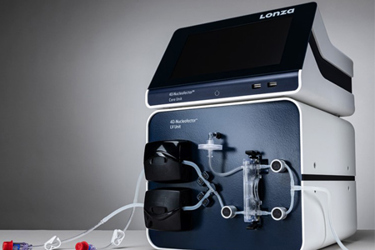Large-Volume Non-Viral Genetic Modification Using The 4D-Nucleofector® LV Unit In Cell And Gene Therapy

This white paper explores the transformative role of the 4D-Nucleofector® LV Unit in large-scale, non-viral genetic modifications essential for advancing cell and gene therapies. By enabling efficient transfection of up to 1 billion cells, the platform addresses critical challenges in scaling genetic modifications from research to clinical applications. Key features include compatibility with Good Manufacturing Practice (GMP) guidelines, closed-system operation, and compliance with 21CFR part 11 software requirements. Highlighting a series of peer-reviewed studies, the document demonstrates the system’s adaptability across various genetic engineering techniques, such as CRISPR-based knockouts, base editing, and mRNA delivery for CAR-T cell production, as well as its applications in treating diseases like leukemia, sickle cell anemia, and other malignancies.
The showcased studies underline the unit’s capability to streamline workflows, reduce costs, and enhance editing efficiencies in both research and clinical-scale manufacturing. For example, base-edited CAR-T cells and CRISPR-engineered universal T cells demonstrated robust therapeutic efficacy, precise gene editing, and reduced off-target effects in preclinical and clinical settings. Additionally, innovative methods like recombinant virus production and high-throughput T cell receptor engineering highlight the 4D-Nucleofector® LV Unit’s versatility in supporting cutting-edge therapeutic approaches.
This paper underscores the 4D-Nucleofector® LV Unit as a pivotal tool for translating genetic modification technologies into scalable, safe, and effective therapeutic solutions, fostering advancements across the cell and gene therapy landscape.
Get unlimited access to:
Enter your credentials below to log in. Not yet a member of Bioprocess Online? Subscribe today.
